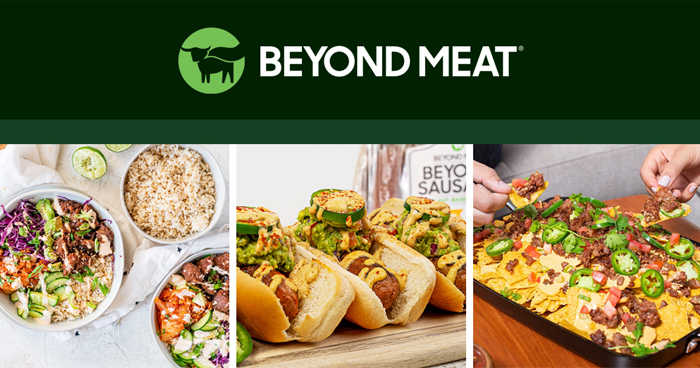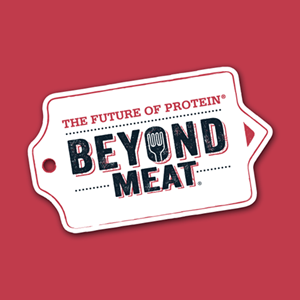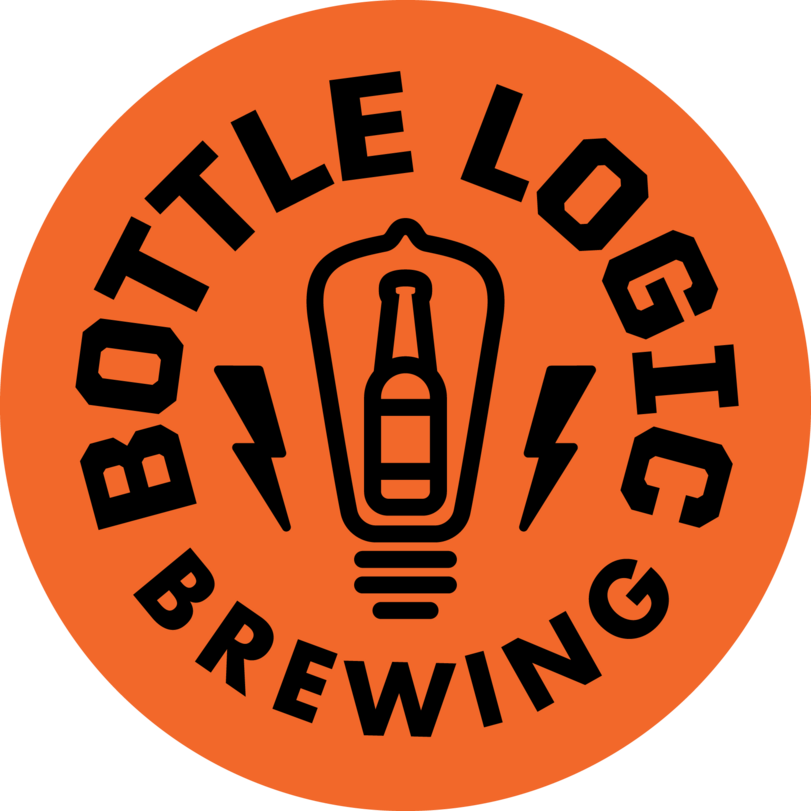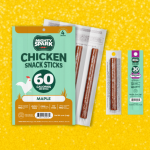Beyond Meat Reports U.S. Retail and Foodservice Declines in Q3

After reaching record net revenues in the second quarter, plant-based meat maker Beyond Meat faced a more challenging Q3, reporting yesterday that it saw declines across its U.S. retail and foodservice businesses driven by labor shortages, shipping delays and slowing demand.
The company had already last month warned of a less-than-stellar Q3, issuing an updated guidance on its third quarter results that dropped its expected revenue to from $120 to $140 million down to $106 million. On its earnings call yesterday, the company reported $106.4 million in net revenue, up 12.7% year-over-year, driven by 143% international sales growth, while U.S. net revenues were down 13.9%.
While Beyond Meat’s total retail net revenues saw a 5% boost from last year, growth came from international retail sales, with U.S. retail down 15.6%. It also saw a 21% year-over-year decline in velocity, though president and CEO Ethan Brown said its brand velocity still remains approximately three times higher than the category average, while its household penetration was up 20 basis points for the quarter and 90 for the year to 6.4%.
Brown said the drop in retail demand can be attributed to consumers making fewer shopping trips, being less open to trying new products and less interested in healthy options. The cancellation of sampling programs, labor constraints and increased competition in the plant-based categories also contributed to retail declines, he added. The company’s “most aggressive marketing to date” set for 2022 will aim to mitigate this sales drop, Brown said.
Beyond Meat’s U.S. food service net revenues decreased 7.3% year-over-year, though they were up 117% internationally. Brown noted that two-thirds of its foodservice business in the U.S. was impacted by COVID-19 and the emergence of the Delta variant. Still, the company is growing its foodservice presence through partnership with chains like Pizza Hut, Pandora Express and McDonald’s. The company recently expanded its test with Panda Express to 70 locations across 10 markets, and last week launched a McPlant test with eight U.S. McDonald’s restaurants.
The tough quarter for Beyond Meat comes after Maple Leaf Foods, parent company of plant-based meat and dairy brands Lightlife and Field Roast, reported last week on its Q3 earnings call that the plant-based category has seen deceleration over the past six months. However, Brown said doesn’t believe demand decline has anything to do with “any sector issue or any segment issue” within the plant-based protein category.
“It remains our objective and focus to insulate our long-term strategy from short-term conditions,” Brown said. “Just as we did not adjust our focus and strategy as a result of record revenues in Q2 of this year, we continue to execute against our plan despite a difficult third quarter. As such, this remains a period of intense investment in our future.”
Internally, the company faced labor shortages across its transportation partners, co-packers, and third-party logistics providers throughout the quarter, Brown said. Severe weather also destroyed a significant amount of packaging inventory in a Pennsylvania storage center, affecting its ability to fill orders.
“Having weathered both literal and figurative storms throughout the quarter that brought into sharper focus areas for more rapid development, we are emerging as an even stronger organization,” Brown said. “These disruptions notwithstanding, through Q3 2021, we remained highly focused on the execution of our long-term strategy.”
With these operational challenges in mind, CFO Phil Hardin said the company’s expected net revenues for the fourth quarter “reflect some conservatism,” anticipating a range from $85 million to to $110 million.
Despite Beyond Meat’s performance this quarter, Brown said the company is “cautiously optimistic” about 2022 and will continue to grow its global business, across sales, marketing, manufacturing and innovation. The company will “let the fog clear of the events of the last year” and focus on bolstering its core product offerings while rolling out new innovations to support growth in Q4 and into 2022, he said. Next month, he added, the company will announce an “exciting addition” to its operations leadership team who will “bring valuable and directly relevant experience in serving our QSR partners and scaling global food manufacturing operations.”

















